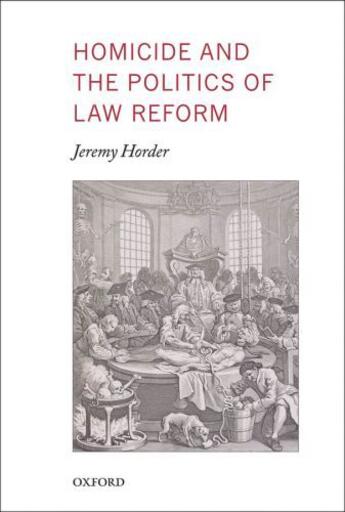-
Nombre de pages : (-)
-
Collection :
(-)
-
Genre :
(-)
-
Thème :
Non attribué
-
Prix littéraire(s) :
(-)
Résumé:
What makes murder, murder? How should we understand the difference between intentional and reckless killing? Should offenders be punished differently according to the perceived severity of their crime and when should they be excused?
These questions are the topic of intense debate within legal... Voir plus
What makes murder, murder? How should we understand the difference between intentional and reckless killing? Should offenders be punished differently according to the perceived severity of their crime and when should they be excused?
These questions are the topic of intense debate within legal circles and beyond in the UK, the US, and the rest of world. Jeremy Horder's role as the Law Commissioner for England and Wales on criminal law has given him unique insight into these questions and the debates surrounding them. Here he analyses the recent political and legal reform movements, offering a political history of homicide law reform from the 19th century to the modern era.
Using homicide as a starting point, Horder raises deeper questions of who is and should be responsible for making and changing the law. What role should there be for expert bodies, judges, and politicians? What role should there be for the general public? These questions invoke strong emotional responses. Horder argues that comprehensive research into, and a degree of difference to, public opinion on the scope of homicide is essential to the reform process. It is essential principally as a means of conferring true legitimacy on homicide reform in a democracy. Elite or expert opinion alone will never authentically secure such legitimacy. Offering an insider's view into the processes of achieving law reform, Horder expresses criticism of a system that excludes the vast majority of people from consultation on reform of the laws that govern them.
Donner votre avis














